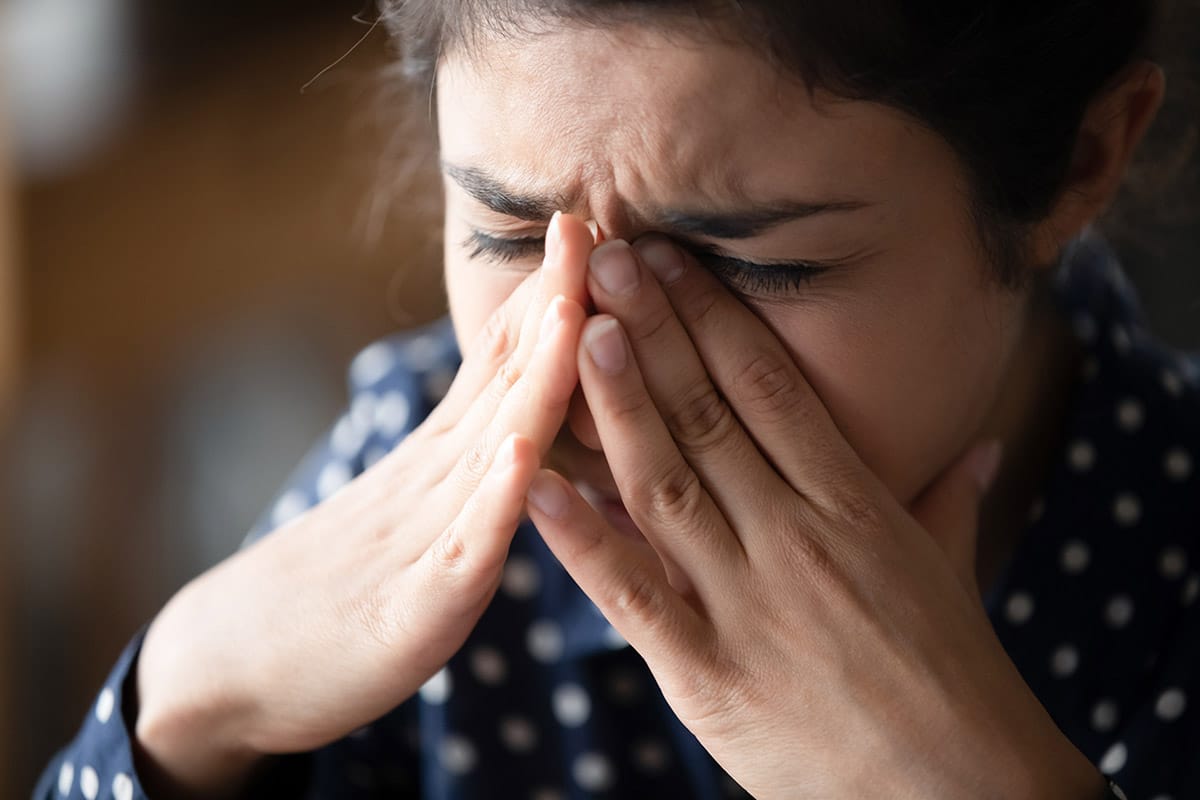Anxiety is a common mental health disorder that affects millions of men and women each year. In fact, one in 10 of us struggles with panic attacks. Those who experience panic disorders may wonder how to deal with a panic attack without turning to drugs or alcohol for relief. In fact, enrolling in a panic disorder treatment program is the best way to learn healthy new coping skills and stop any drug or alcohol abuse that is caused by the disorder.
At Crestview Recovery, we help men and women 18 and over who are struggling with addiction caused by panic disorders, depression, PTSD, or other mental health illnesses. Our team has experience treating all types of addiction and the underlying causes fueling it. They will take the time to get to know you and your personal history. Then, they’ll create a tailored treatment program with private and group therapy sessions. If you are interested in learning more about our panic disorder treatment program, call 866.262.0531 today to speak with our compassionate team.
What Is a Panic Attack?
A panic attack is a type of anxiety where individuals feel intense and overwhelming fear or panic suddenly and seemingly without warning. Panic attacks are triggered by a number of internal and external factors that can range wildly between people. A person can experience a panic attack going on a first date, right before giving a big presentation or performance, or from certain sights, smells, or sounds.
There can be very little warning before a panic attack hits unless you are familiar with your specific triggers. If you or a loved one experiences panic attacks, you should familiarize yourself with the common signs of a panic attack:
- Increased heart rate and blood pressure
- Hot flashes
- Chills
- Stomach cramping
- Headaches
- Chest pains
- A sense of impending doom
- Feeling out of control
- Tightness in the throat
- Hyperventilating
- An overwhelming fear of death
At Crestview Recovery, you will learn healthy new tips for panic disorder prevention and other skills that promote a healthy lifestyle. During therapy, you will build your confidence in abstaining from drugs and alcohol. You’ll also learn about preventing future panic attacks through holistic life skills and medication for more serious symptoms.
How to Deal with a Panic Attack
There are plenty of healthy ways to stop a panic attack before they happen. Like any mental health disorder, once you understand what triggers your anxiety, the easier it will be to stop the attack before it happens.
By learning how to deal with a panic attack, you gain the life skills necessary to calmly cope with any situation life throws at you without any drug or alcohol cravings. Here are some tips on panic attack prevention:
Behavioral Therapy
Cognitive-behavioral therapy is one of the most widely-accepted forms of treatment for anxiety, depression, addiction, and other mental health disorders. Therapists work individually and in group therapy sessions to help clients uncover the root cause of their anxiety and build healthy coping skills for managing their symptoms and triggers.
Mindfulness Techniques
Holistic therapies offer many healthy tips for panic disorder prevention, including breathing techniques, meditation, and other mindfulness practices. If you are dealing with a stressful situation at work and feel your anxiety rising, you can take a quick five-minute meditation to relax and focus.
Exercise
Your work and personal life can get very stressful at times and can increase your anxiety. A 5–10 minute walk around the office is a great way to burn off pent-up frustration and anger. It gives you time to think about the situation and come up with a solution.
Medication
Several proven medications can reduce the frequency of panic attacks. The Food and Drug Administration has approved several selective serotonin reuptake inhibitors (SSRIs) for treating anxiety and depression. Fluoxetine, paroxetine, and sertraline are generally safe to take for anxiety with minimal risks of serious side effects. These medications are typically prescribed as part of a therapy program that works to uncover the underlying cause of panic attacks.
Find Tips for Panic Attacks at Crestview Recovery
 At Crestview Recovery, our team has plenty of tips for panic attack prevention and other life skills that will benefit your recovery and future happiness. When you first arrive at our facility, we will run a full assessment of your physical and mental health along with the severity of the addiction. We use that information to create a custom treatment program based on your individual recovery goals.
At Crestview Recovery, our team has plenty of tips for panic attack prevention and other life skills that will benefit your recovery and future happiness. When you first arrive at our facility, we will run a full assessment of your physical and mental health along with the severity of the addiction. We use that information to create a custom treatment program based on your individual recovery goals.
If you are ready to make a positive change in your life, call 866.262.0531 or send us a message online today, and we will get back to you within 24 hours.
































